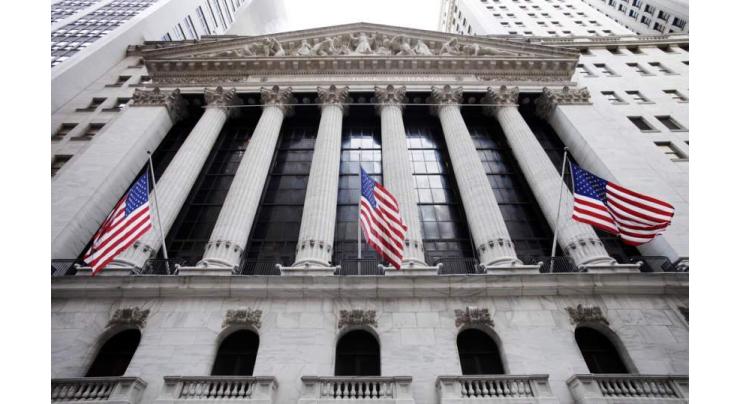
Asia Stocks Rise After Wall Street Rally
Fahad Shabbir (@FahadShabbir) Published August 12, 2016 | 11:34 AM

HONG KONG, (UrduPoint / Pakistan Point News - 12th Augst,2016) - A strong lead from Wall Street gave Asian stock markets a lift Friday, after all three major US indices vaulted to new records as the oil price rebounded. Markets were up even as economic data from China missed expectations -- a disappointing sign for growth in the world's second largest economy. The three-way record in the US, last seen among the leading indices in 1999, came amid strong gains in petroleum-linked shares and retailers, while European stocks also pushed higher thanks to accommodative central bank policies lending continued support to equities. Among the performers was China's New York-listed e-commerce behemoth Alibaba, which reported sales of 32.15 billion Yuan ($4.83 billion), 59 percent higher than the level a year ago and above analyst expectations. Oil prices were buoyed by a Saudi Arabian minister's comments that crude producers may take action to rebalance the market, and extended their gains in Asian trade. "Asia Pacific markets are set to finish the week on a high following strong leads from European and US investors," Michael McCarthy, chief market strategist at CMC Markets in Sydney, said in an email commentary. "Industrial commodities rose, led by oil, and overnight trading displayed 'risk on' characteristics despite the lack of an obvious trigger." Tokyo was up 0.7 percent, having been closed Thursday for a national holiday, while Sydney gained 0.3 percent.
Taipei, Manila and Bangkok also traded higher. Shanghai rose 0.2 percent and Hong Kong advanced 0.6 percent, even as China data disappointed. Government figures released Friday showed that retail sales in the Asian powerhouse rose 10.2 percent year-on-year in July, a sharp slowdown from the 10.6 percent increase in June and below the median forecast of a 10.5 percent rise in a Bloomberg news poll of economists. Also missing expectations was factory output, which increased 6.0 percent in July over the year before, and fixed asset investment (FAI), a gauge of infrastructure spending, which rose 8.1 percent in the first seven months of the year.
Industrial output had been expected to show 6.2 percent growth and FAI 8.9 percent growth. "Though the economic data are weak, they are still within an acceptable range to investors," Wang Zheng, the Shanghai-based chief investment officer at Jingxi Investment Management Co told Bloomberg News. The National Bureau of Statistics (NBS) said in a statement China's economy was "basically steady" in July but that "serious disasters" from flooding and high temperatures in some parts of the country caused some indicators to slow. Beijing is looking to retool the economy from a reliance on investment spending and exports to one driven more by consumer demand, but the transition is proving bumpy and gross domestic product growth expanded last year at its slowest rate in a quarter of a century.
Related Topics
Recent Stories

Cricket: England v West Indies 3rd Test scoreboard

Finance minister briefs Chinese officials on reform agenda, engagement with IMF

Finland says Russian vessel violated its territorial waters

Olympic opening ceremony under way on River Seine

West Indies' treble strike rocks England in third Test

Ukraine court orders detention of suspect in murder of nationalist ex-MP

Long queues, ticketing problems ahead of Paris opening ceremony

Rana Sanaullah Khan joins Paris 2024 Olympics inauguration reception

Glowing tributes mark 69th birthday of President Zardari at Governor's House

Players unaware of spying scandal as Canada Olympic coach sent home: official

Naqvi hails Pak women cricketers for going down fighting against SL

'Sabotage' on French rail network before Olympics: What we know
More Stories From Business
-

Finance minister briefs Chinese officials on reform agenda, engagement with IMF
7 hours ago -

Chinese support for CPEC, development projects show deep love with Pakistan: Mushahid
7 hours ago -

G20 seeks common ground on taxing super-rich
7 hours ago -

Stocks rise as inflation data boosts rate cut hopes
7 hours ago -

Land of PSM to be used for establishment of SEZs: NA body told
10 hours ago -

European medicines watchdog rejects new Alzheimer's drug
10 hours ago
-

FBR committed to resolve taxpayer issues in KP, Chairman FBR assures Governor KP
11 hours ago -

Tanveer emphasizes role of SEZs in attracting investment
11 hours ago -

Russian central bank hikes key rate to fight inflation
11 hours ago -

SBP injects Rs9.545 trillion into market
11 hours ago -

PSX stays bearish, loses 439 points
12 hours ago -

US Fed's favored inflation measure cools further in June
13 hours ago

















